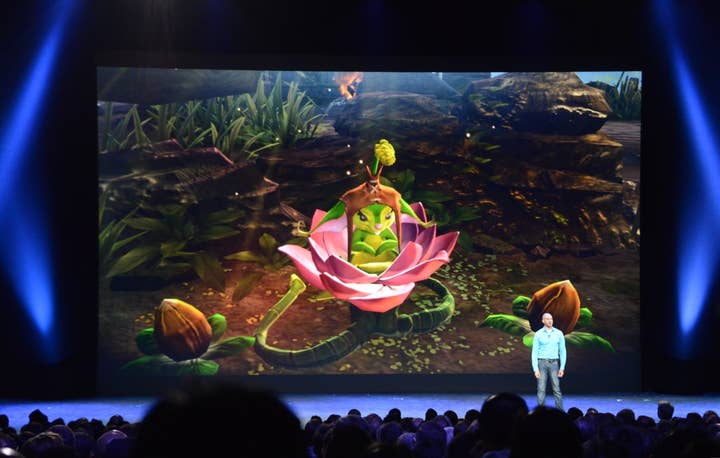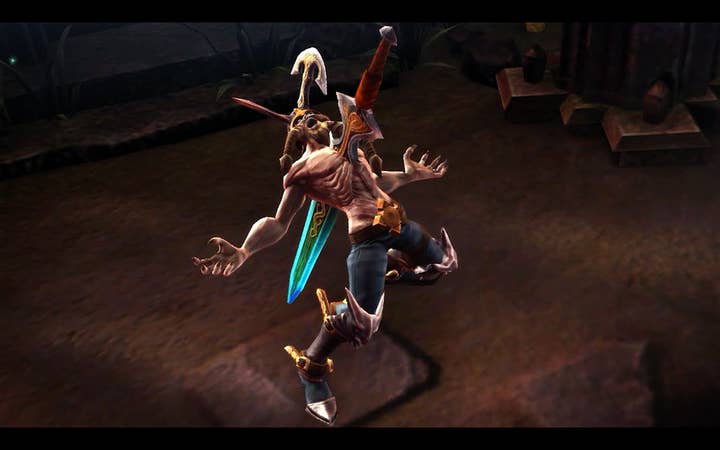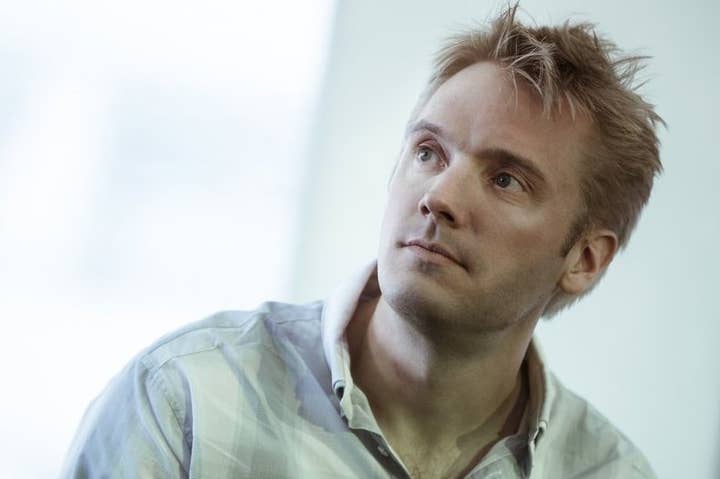Super Evil Kristian Segerstrale
He backed Supercell and now he's backing a MOBA for iOS, but can Vainglory win over core gamers?
If you're going to announce a new mobile game, there are few places better to do so than on stage at an Apple product launch. Super Evil Megacorp did just that with Vainglory, a MOBA designed from the ground up for core gamers and touchscreen devices.
COO Kristian Segerstrale - yes, that Kristian Segerstrale, founder of what would become Glu Mobile, founder of PlayFish, investor in SuperCell, the man with the mobile Midas touch - sat down with GamesIndustry.biz not long after the Apple conference to talk about that special relationship, bringing a core MOBA to a casual device, and what he looks for when taking on a new challenge.
"It was surprisingly smooth in the end. That said, probably we rehearsed it 50 or 60 times over the days preceding," says Segerstrale on the Apple event.
"It was very intense. I wouldn't say that it was stressful. One of the advantages of having our own engine and controlling the end to end code is that this sort of thing is fully internally controlled, so we actually don't rely on any third parties. There are no components of the code base that we haven't written ourselves and don't fully control ourselves."
Segerstrale adds that the decision to work with Apple was made some time ago and a mix of good timing and good relationships.
"Apple are very thoughtful about how they work with developers and who they work with and in which ways to try and help create the best consumer experience. And that's why we're focused on iOS devices today."

Segerstrale knows this mobile market, having worked in it since leaving university in 2000. But this is a new proposition, a truly core game for a machine that most people use for tweeting, watching films and casual gaming. The game will use a free-to-play business model, but not the type of free-to-play that one would assume.
"The free-to-play model evolved officially on Facebook, got stretched further and further and became more and more sophisticated, but it's still sort of the things you see today. A lot of them have to do with things like timers and pay gates, which really originated on Facebook as a more casual gaming mechanic.
"If we think core gamers are far more attuned to models which are endlessly free-to-play, similar to the kind of models that you see on PC where your gameplay isn't restricted, and the way that monetisation works is really finding the things you care about in the game and letting you customise those. So when we think about it, pay to win is a no no for us. The game must be fair, we must be fair no matter how much or how little money you spend. You must be able to continue to play as long as you want, whenever you want, for as long as you want without paying."
The key, then, is making players feel so invested in the game that they're motivated to spend money on things that are important to them. I point out that core gamers are already happy to spend money on games, and often $60 a time for a AAA title. But Segerstrale says it goes even further than that.
"I think it's a really important differentiator, so it's not that we make core games because core gamers pay a lot of money. We make core games because we love core games and because we think that core gamers deserve better on touchscreens."
Plenty of games have claimed to be AAA on mobile, made for core gamers, but Segerstrale says few have actually lived up to that promise.
"One of the most exciting things about the company and about this stage of gaming overall on touch screens is exactly that. Clearly - bar Hearthstone, I'm setting that aside - there hasn't been the kind of software that would have acted as a beacon for core gamers, saying 'this is now a legit core gaming platform.'"

In fact, that's one of the key challenges for Super Evil Megacorp: How do you market a mobile game to an audience that has been let down in the past? Beyond having your game livestreamed across the world at an Apple event, of course.
"If we do get core gamers to actually try the game we have a very good chance at converting them into an advocate. But there is massive scepticism and we're not denying that," Segerstrale admits.
"All it requires is for somebody to play the game a couple of times and get the feeling that 'whoever made this cares about the same things that I care about as a core gamer.' And that's something we don't know if even our marketing materials can overcome, but it's something that we are very aware exists and all we can say is we invite core gamers to please try it."
One of the company's successful conversions so far was Ciderhelm, a YouTuber focused on League Of Legends, who went from ignoring Super Evil Megacorp's emails to playing the game and, now, working for the company. Segerstrale hopes to replicate that on a massive scale, and he's clearly looking forward to as much feedback as people are willing to give.
"We've been working with a community of tens of thousands of players for six or seven months to try to get there, but all new opinions are going to be exciting for us. We prefer constructive... [laughs] but if you feel like you've got to go all caps, do it."
The game is due to start rolling out on iOS next month and is already building a following on social media and competitive gaming sites.
"Ultimately, the whole company, literally bar none, we're all core gamers and we want to create the kind of experience that is worthy, that we hope we can make worthy of other core gamers' attention. That's really what we're trying to do."

